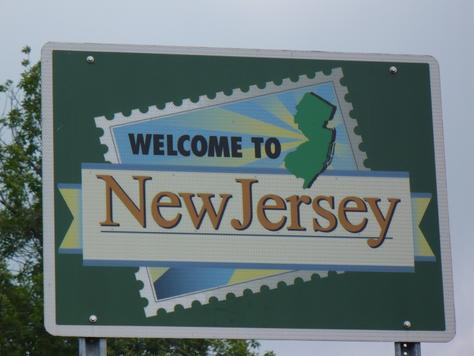If you’re a self-described journalist who posts on Internet message boards, then you’re not protected by the reporter’s shield law.
So says, at least, the Supreme Court of New Jersey.
Earlier this week, it handed down Too Much Media LLC v. Hale [PDF file], a case featuring porn, cybersecurity and death threats. (What more could you want?) To unpack the case, let’s start with the facts and then shift to the law.
POSTING COMMENTS, DOING JOURNALISM?

In 2007, Shellee Hale, a former Microsoft employee and tech consultant, worked from home as a certified life coach. She interacted with clients using webcams, and several times the clients exposed their genitals to her, Chat-Roulette style. After complaining to the webcam service, Hale began investigating “how technology was used to abuse women.”
In need of an outlet, she created Pornafia.com, an “information exchange” that focused on “the unprecedented levels of criminal activity now rampant within the global adult entertainment industry.” The site, however, never got off the ground.
Still in need of an outlet, Hale turned to Oprano.com, a site dedicated to the “business of porn.” It features a message board, where she posted comments about the software company Too Much Media (TMM). She criticized the company because of a security breach that potentially exposed the personal information of people who signed up for porn sites. TMM made the affiliate program that was breached.
Hale suggested in her Oprano comments that TMM threatened people, profited from the breach, and broke the law. For example, on March 17, 2008, she wrote:
Consumer’s personal information is fair game to every thief online[.] Read the 2much media Nats depositions (not yet public but copies are out there — Charles [Berrebbi] and John [Albright] may threaten your life if you report any of the specifics…).
Berrebbi and Albright are the founders of TMM. Hale’s post went on to note “the depths of the schemes and fraud and how the unethical and illegal use of technology has become common practice.” In response, TMM filed a lawsuit against Hale, claiming defamation and false light.
When the TMM lawyer deposed Hale, she refused to answer questions and invoked the New Jersey shield law, which allows reporters to protect the information they gather and the confidentiality of their sources. The trial court said Hale didn’t qualify for the shield, and the appellate court agreed. Then the Supreme Court of New Jersey took the case to clarify things — i.e., to decide who qualifies to claim the shield.
LEGALLY, WHO QUALIFIES?
New Jersey’s shield is a broad one, among the broadest in the country. First, it covers anyone engaged in, connected with, or employed by the “news media,” defined as “newspapers, magazines, press associations, news agencies, wire services, radio, television or other similar printed, photographic, mechanical or electronic means of disseminating news to the general public.”
Second, it defines “news” as “any written, oral or pictorial information gathered, procured, transmitted, compiled, edited or disseminated by, or on behalf of any person engaged in, engaged on, connected with or employed by a news media and so procured or obtained while such required relationship is in effect.”
Against that backdrop, the court held [PDF file] that Hale didn’t qualify for the shield, because she lacked the connection to the “news media” that it requires. The legislature didn’t intend for the shield to cover all self-described journalists, the justices said, and online message boards are not similar to the news entities listed in the statute. They are “little more than forums for discussion,” like unedited, unscreened comments posted by readers on a news site.
So what do you need to do, then, to qualify for the shield in New Jersey? Show three things: (1) a connection to the “news media,” (2) the intent to gather or disseminate the “news,” and (3) that you obtained the sought-after information (i.e., whatever you don’t want to disclose) in the course of “professional newsgathering activities.”
Focusing only on the first prong, the justices said “news media” can include outlets not listed in the statute, as long as the outlets are similar to “traditional news media.” Likewise, they said the shield doesn’t demand particular credentials or adherence to particular journalistic standards (e.g., disclosing conflicts of interest).
FUTURE IMPLICATIONS?
On the one hand, the opinion is narrow in scope, saying simply that people who post on Internet message boards aren’t covered by the shield law. On the other hand, the opinion is broad in scope, setting out principles that might handicap the news media of the future.
As the court pointed out, new technologies would broaden the “possible spectrum of what the shield law might encompass — from daily print journalism, to websites…to chat rooms, personal blogs, and beyond.” But, again, the key here is the extent to which the new technologies are similar to the traditional news media.
That worries me.
Already the Internet has created what Harvard law professor Yochai Benkler calls the “networked fourth estate,” which combines elements of the “traditional news media with those of the new.” As those outlets evolve, perhaps as they become more collaborative and interactive, they might not be similar anymore to the traditional news media, insofar as that term refers to “newspapers, magazines, press associations, news agencies, wire services, radio, [or] television.”
So the result would be, at best, a reporter’s shield that doesn’t protect all the news media (unless the legislature amended the statute, or the court reinterpreted it), and at worst, a reporter’s shield that deincentivizes innovation.
Whether those are imminent or remote possibilities, I don’t know. My crystal ball is about as clear as Sarah Palin’s thinking. But they’re possibilities nonetheless, and worth considering. In the meantime, all we can do is watch and wonder.
Jonathan Peters is a lawyer and the Frank Martin Fellow at the Missouri School of Journalism, where he’s working on his Ph.D. and specializing in the First Amendment. He’s written on legal issues for a variety of news media, most recently Wired and PBS MediaShift. His research has appeared in the Harvard Law & Policy Review and the Federal Communications Law Journal.

